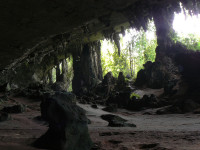PARIS – The French government said today there was “no health risk” from traces of a banned pesticide which were revealed in drinking water by a study from the country’s consumer safety watchdog.
The Anses watchdog yesterday published the findings of research into the presence of around 200 complex chemical compounds in drinking water around the country, based on 136,000 samples taken from groundwater and treated water sources.
It highlighted the presence of traces of chlorothalonil, a banned fungicide produced by Swiss agro-chemicals group Syngenta, which exceeded authorised levels in more than one in three samples.
A joint statement from the environmental and agriculture ministries said that the maximum level detected was 0.2 micrograms per litre (0,2µg/litre), above the authorised limit of 0.1 µg/litre, but below 0.3 µg/litre which is considered potentially dangerous.
“The tested water samples are therefore beyond limits, but they do not represent a health risk,” the statement said.
The results have raised questions about the presence of other undetected chemicals in drinking water and pose potentially major operational and financial challenges for water companies, which do not have the technology to scrub out such pollutants.
The statement said the health ministry would put in place more regular monitoring of watercourses.
Chlorothalonil, sold under the brand name Bravo by Syngenta, was a best-selling product to prevent mildew and mould on crops from the 1970s until it was banned in the European Union in 2020 due to fears it could be carcinogenic.
The chemical most widely detected by Anses was a byproduct of the fungicide when it breaks down after use, known as metabolite R471811, which has also raised concerns during water quality tests in Switzerland.
Syngenta has always denied that chlorothalonil poses a health risk and said the results from two further toxicity studies would be published later this year, including one on laboratory rats.
In a statement on its Swiss website, it says that one microgram per litre is the equivalent concentration of dissolving “a grain of sugar in 200,000 bathtubs of water.”
But French environmental groups say the latest findings confirmed the need to wean the industrial farming sector off the intensive use of pesticides and other chemicals.
In February, Anses ordered a halt to some uses of one of the most widely used weedkillers in France, S-metolachlor, which is also produced by Syngenta, after finding excessive levels in groundwater. – AFP, April 7, 2023





















